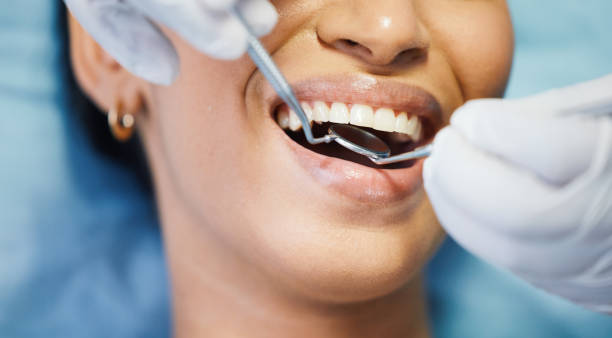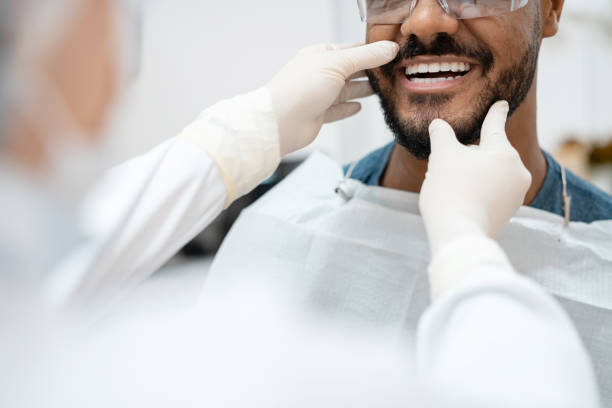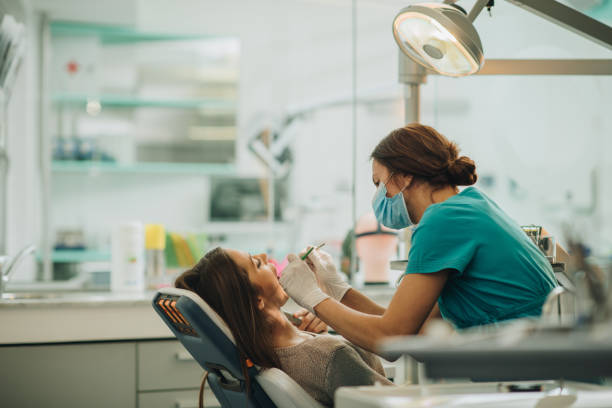Regular Dental Check-Ups Benefits
Keeping our oral health in check requires that we take proper care of our teeth. Frequent dental examinations are essential for maintaining the health of our teeth and preventing tooth issues. We'll talk about the value of dental exams in this piece and offer advice on how often to get them in.
The significance of dental exams
Regular dental check-ups are a crucial part of maintaining good oral health. They provide an opportunity for your dentist to assess the overall health of your mouth, teeth, and gums. These check-ups can help detect problems early, when they are most treatable, and can even prevent oral health issues from developing in the first place.
Benefits of Regular Check-Ups for Oral Health
-
Prevention of Tooth Decay: The primary reason to visit a dentist regularly is to avoid dental issues such as tooth decay and gum problems. These issues may seem minor at first, but they can lead to more serious problems and even major dental treatment if they are not addressed early.
-
Early Detection of Oral Cancer: With early detection, oral cancer can be treated more effectively. Regular check-ups can help your dentist identify early signs of oral cancer.
-
Gum Disease Prevention: Regular dental visits can help prevent gum disease, which can lead to tooth loss and other health issues.
-
Maintaining Good Physical Health: Poor oral health has been linked to a variety of health problems outside of the mouth, including heart disease, diabetes, and stroke.
Tips on How Often to Schedule Dental Visits
The frequency of dental visits can vary from person to person. Some people may need to visit the dentist more often than others. Generally, it is recommended to have a dental check-up every six months. However, your dentist may suggest that you visit more or less often depending on your specific circumstances.
Importance of Early Detection and Prevention of Dental Problems
Early detection and prevention of dental problems can save you from the pain and cost associated with advanced dental problems. Regular dental check-ups allow your dentist to detect problems early and provide appropriate treatment. Preventive measures, such as professional cleanings and fluoride treatments, can help protect your teeth from decay and other diseases.
Remember, it’s important to maintain good oral hygiene habits between check-ups, including brushing twice a day and flossing daily. If you have any concerns about your oral health, don’t hesitate to contact your dentist. They’re there to help!
In conclusion
regular dental check-ups play a vital role in maintaining good oral health. They not only keep your teeth and gums healthy but also contribute to your overall well-being. So, make sure to schedule your dental check-up today!
FAQs
How to get super bright teeth?
The answer is a happy smile It caters to individuals seeking fast and easy teeth whitening solutions without the hassle of scheduling appointments or investing significant time and money into professional treatments. Available with one click.
What is the purpose of regular dental check-ups?
Regular dental check-ups are crucial for maintaining good oral health. They allow your dentist to detect any early signs of problems such as tooth decay and gum disease, which can be treated at an early stage.
How often should I visit the dentist?
Good oral hygiene is important to prevent diseases such as tooth decay and gum disease. It also helps in maintaining overall health as poor oral health can lead to serious health problems such as heart disease and diabetes.
How often should I brush and floss my teeth?
It’s recommended to brush at least twice a day and floss at least once a day. However, depending on your specific oral health needs, your dentist may recommend more frequent brushing and flossing.
What are the benefits of using mouthwash?
Using a mouthwash can help kill bacteria in the mouth, freshen breath, prevent plaque build-up, and fight gum disease. It’s a good addition to brushing and flossing, but not a replacement.










No comments: